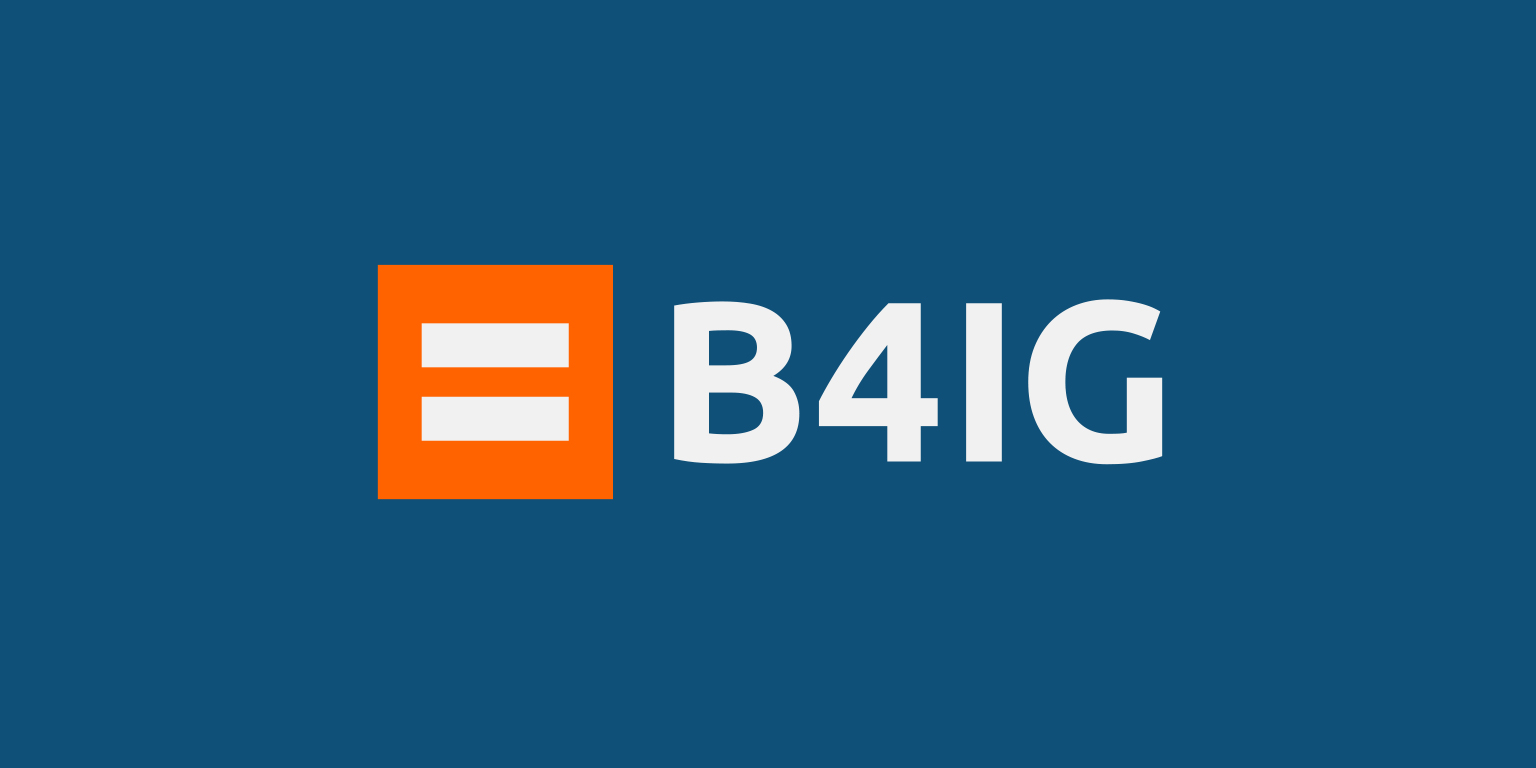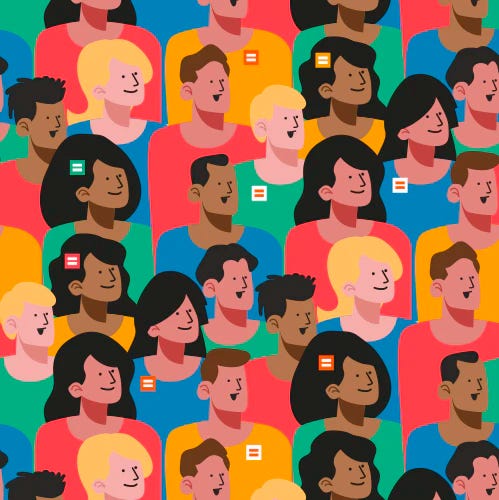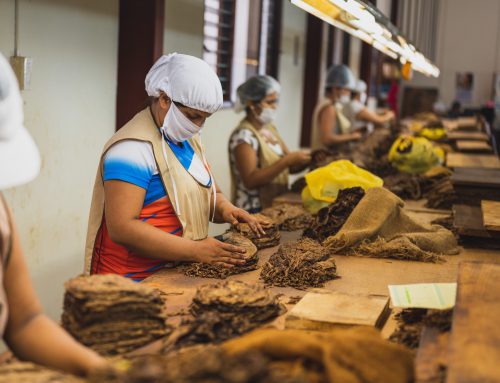B4IG Newsletter, May 25th, 2022 Edition
In this issue:
- An outcome-based financing vehicle to support the inclusion of Ukrainian refugees in the workplace?
- The 2022 Incubation Program has started!
- Launch event for the B4IG Inclusive Sourcing Methodology.
- The business case for living wage.
- and more!
Corporations have shown exceptional leadership in supporting Ukrainians impacted by the war. They immediately undertook actions to support their staff and their families as well as donate products and services to the displaced and people in need. Their role in these initiatives constitutes a decisive contribution to the support of the Ukrainian population and, as such, a real historical precedent.
And now? The war is likely to last a long time. Over 6 million refugees are estimated to have fled to neighbouring countries since February 24th, according to the UN Refugee Agency. How might companies help relocate and actively integrate the Ukrainian refugees into the labour market? We need coordinated public-private action at scale.
The remarkable engagement from businesses and governments gives a unique opportunity to initiate innovative partnerships. Following BNP Paribas’ initiative, the B4IG Financing Forum is currently working on an outcome-based funding pilot focusing on the inclusion of Ukrainian refugees in the workplace. In this financing vehicle, where the investor is a financial institution and the delivery organisation an NGO or a social enterprise, the outcome funder is a corporation, a foundation or a public administration. Corporations don’t have to bring capital upfront to finance the projects, they only pay the outcome to the investor if the desired impact is achieved. This is a fundamentally innovative mechanism that would allow corporations to scale up actions to include Ukrainian refugees in the workplace, and, more broadly, to scale up projects that have both a business case and a positive impact on society.
The Actions
The Incubator
The 2022 Incubation Program has started! Eleven projects from ten member companies have been selected. Focusing on early-stage projects, the program aims to help project teams manage socially innovative projects and prepare for a future scale-up phase. The 10-month program includes several training sessions, and each team is supported by a tutor who helps them prepare for the sessions and build on their key learnings.
Similar to the past two years, the selected projects address a variety of topics. Several projects are related to the integration of vulnerable people (unemployed youth, BIPOC, migrants, and refugees) into the workplace. There are also projects focused on supporting work-life balance and inclusive leadership. Others aim to put people at the heart of green projects, ensuring that a circular economy project will be inclusive, giving access to climate and biodiversity resilience funding to small producers and rural communities, or empowering waste pickers.
The B4IG Incubator also launched its Collective Training program this April. This program, open to all B4IG members, has been co-designed with experts and academics. The objective is to raise awareness on social innovation and reinforce inclusive business capabilities within B4IG member organisations. The next sessions will take place on June 7th, 3-4 pm CET (Enhance Robust Partnerships), June 21st, 3-4 pm CET (Engage Stakeholders) and July 5th, 3-4 pm CET (Connect to Consumers and Clients). Don’t hesitate to reach out to the Incubator team should you have any questions or want to receive the invitation (incubator@b4ig.org).
Inclusive Sourcing
On Inclusive Sourcing, B4IG and the Sustainable Procurement Pledge (SPP) are organising a launch event on June 22nd, from 4-5:30 pm to publish and present the B4IG Inclusive Sourcing Methodology. Inspired by L’Oréal’s Solidarity Sourcing program and building on member-companies’ experiences, the objective of the methodology is to equip procurement teams with practical and operational tools to embed inclusive sourcing principles in their procurement practices. Invitations will follow shortly.
Financing Forum (IGFF)
The B4IG Financing Forum is actively moving forward in three directions.
First, a Just Transition Fund that would target 100 million euros and invest in social joint ventures and social enterprises supported by corporations in Europe. The project will be shared with the entire coalition as soon as it has been approved by its main sponsors.
Second, an outcome-based funding pilot (as presented in the introduction) to scale up initiatives that support socially excluded and vulnerable people, with an initial focus on Ukrainian refugees in the workplace. We are in the process of identifying the potential participants in the three main roles of investors, delivery organisations and outcome funders to collectively design the outcome-based mechanism. Don’t hesitate to contact the B4IG team if you want to learn more about this innovative approach to financing social projects.
Third, the Financing Forum connects member companies’ corporate funds with potential partners. For example, it organised a presentation to the Access Working Group of the Water Access Acceleration Fund (W2AF) sponsored by Danone and managed by Incofin with a target of 70 million euros. Please contact the B4IG Team if you want to get this presentation or share your proposed corporate fund with the rest of the coalition.
Working groups
B4IG Working groups (WG) are continuing to move forward. Let us share a quick overview one month ahead of the Board meeting.
The Human Rights WG is finalising the toolbox to carry out human rights due diligence (HRDD) in the contracting of agency workers and service providers. Next working cycle to start this month: grievance mechanisms in the supply chains. As for the Fair Recruitment sub-stream, it is developing a project in the United Arab Emirates (UAE), that should be launched before this Summer.
The Inclusive Workplaces WG is preparing for the publication of the Ethnic Diversity Operational Recommendations in early June, while the Digital Divide sub-stream is bringing more companies together around collective actions supporting digital literacy in France and in the US. The Responsible Transformation Guidelines that were adopted by the December Board meeting were published in March; in the new phase, the WG will be focusing on advocacy work with the OECD and the EU Commission.
On Living Wage, the work cycle for member companies is continuing. The Access WG has decided to focus on individuals; a working session on the poverty premium will be organised soon, as well as share out sessions focusing on access to health resources and financial inclusion.
The Impact Measurement WG has started to work on a set of outcome indicators that will cover the B4IG pledge areas, building on indicators already in use in member companies’ public reporting and global standards. The first set of outcome indicators for living wage will be shared soon!
The Young people WG has decided to focus on the measurement of the many programs that already exist, focusing on the impact on the beneficiaries.
Regarding Just Transition workstreams, the Just Transition KPIs that were proposed in connection with the COP26 are being finalised, while the new workstream focusing on skill programs for workers negatively impacted by the green transition is in the process of defining its operational roadmap.
From the OECD
The recently published Stocktaking report on the OECD Guidelines for Multinational Enterprises assesses the key developments, achievements and challenges related to the MNE Guidelines and their unique grievance mechanism platform, the National Contact Points for RBC, as well as the ecosystem in which the OECD Guidelines are implemented.
The report was developed based on inputs from the National Contact Points for RBC; Institutional Stakeholders BIAC, TUAC and OECD Watch; consultations with OECD Committees; and inputs received during an online public consultation.
Around the Globe
- Business Fights Poverty, The University of Cambridge Institute for Sustainability Leadership, and Shift published a new report with the support of Unilever, entitled ‘The Case for Living Wages’. This research paper aims to demonstrate how paying living wages throughout internal operations and the value chain improves business performance, resilience, and stability while also generating measurable social impact and helping companies better meet their human and labour rights duties.
- Don’t miss ‘Workforce Disclosure in 2021: Trends and Insights’,published by the Workforce Disclosure Initiative (WDI). 173 companies representing some 11 million direct employees responded to the investor request for data. The 2021 survey data “shows that not only does consistent responding lead to higher levels of disclosure, but it is also linked to improved workforce practices”.
- The World Benchmarking Alliance (WBA) just published The Methodology for the 2022 Nature Benchmark, which includes a specific section on Social Inclusion and Community indicators including Right to a safe, clean, healthy and sustainable environment, Indigenous peoples’ rights, Land rights, Water and sanitation.
Thanks for reading, to sign up for the newsletter, click here!
The B4IG Team







